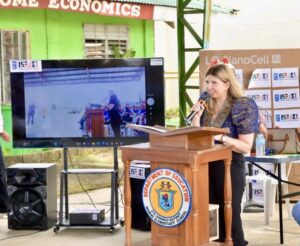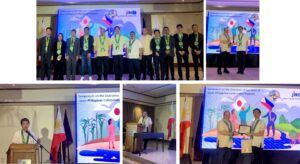
The Philippines (PH) and the Czech Republic (CZ) forged a joint agreement to boost economic cooperation in trade and investment between the two sides.
Trade Secretary Ramon Lopez and CZ Ambassador to PH Jaroslav Olša, Jr. signed on 31 July the PH-CZ Agreement on Economic Cooperation, which is set to strengthen trade and investment relations between the two countries. Both sides also exchanged views on the concrete ways to lead the relations toward a more strategic direction.
“What we are having here is a milestone between our two countries. The
strengths and resources complementarities have long been untapped. It is our desire to be with alternative markets and forge new partnership,” said Sec. Lopez, emphasizing that the industry complementarities of both countries bring increased potential to cooperate on technology-oriented industries, auto and aerospace parts, electronics, agri-based, energy, transportation, and tourism.
“Tourism is the beginning of trade, I say that all the time, because when people come and see how beautiful and interesting things are, they return back and say why don’t you come and do business,” said Ambassador Olša.
Sec. Lopez also encouraged the other side to explore possible cooperation on the development of micro, small, and medium enterprises (MSMEs). He also mentioned other prospects including food and beverage, agriculture and agri-processing, energy, and defense and security solutions.
“I am optimistic that Czech’s industry strengths can be a good start in identifying areas of mutual cooperation,” he added, noting that aerospace development is a viable cooperation area.
The signed agreement means providing PH and CZ to strategically discuss joint initiatives on the mentioned areas of cooperation. In a meeting, it was noted that PH can capitalize on CZ’s industry strengths to implement PH’s Manufacturing Resurgence Program (MRP) and complement activities to address the existing gaps in the implementation of different industry roadmaps.
Specifically, on trade in goods, PH may be able to increase exports of mid-priced apparel to CZ’s rising demand on the product. There is also potential for frozen marine products, dried fruits, and vegetables in the CZ market. These products are eligible under the European Union Generalized Scheme of Preferences Plus (EU GSP+) that allows entry of goods at zero percent tariffs.
Meanwhile, on investments, opportunities for promotion are in the areas of information technology-business processing management (IT-BPM), knowledge process outsourcing (KPO), processed and specialty food, energy, design-driven products and aerospace/aeronautics.
While the PH is pursuing a free trade agreement (FTA) with the EU, PH’s engagement with CZ aligns with the government’s strategy of rebalancing trade relations with non-traditional partners with an independent foreign policy.
Trade Undersecretary Ceferino Rodolfo said that the PH Europe Strategy touches on three pillars: maximizing the utilization of the EU GSP+, negotiating a PH-EU FTA, as well as a PH-European Free Trade Association FTA, which was signed in April 2016 in Switzerland.
Said agreement will also pave the way to the creation of a PH-CZ Joint Economic
Cooperation (JEC).
Meeting on an annual basis as a platform to discuss PH-CZ economic cooperation, the JEC will serve as an additional dimension to the trade ties given the ongoing PH-EU FTA negotiations. The 2nd round of negotiations was held in February 2017 in Cebu.
The JEC will also be a venue for the private sector of both countries to be connected and
develop a beneficial partnership through business-to-business meetings.
Usec. Rodolfo also noted that the “PH and CZ are two fastest growing economies in their
respective regions.” In 2016, CZ was PH’s 31st trading partner (out of 226);
28th export market (out of 213); and 33rd import supplier (out of 207), with total bilateral trade amounting to USD 283 million.
“More than trade, the longstanding relations between PH and CZ is anchored on
shared values and history,” said Trade Undersecretary Nora Terrado, referring to countries’ colonial experience and the shared commitment in upholding the values of freedom and human rights in respective societies.


